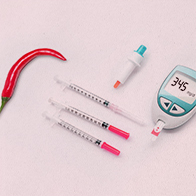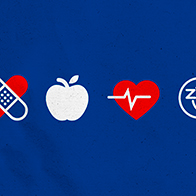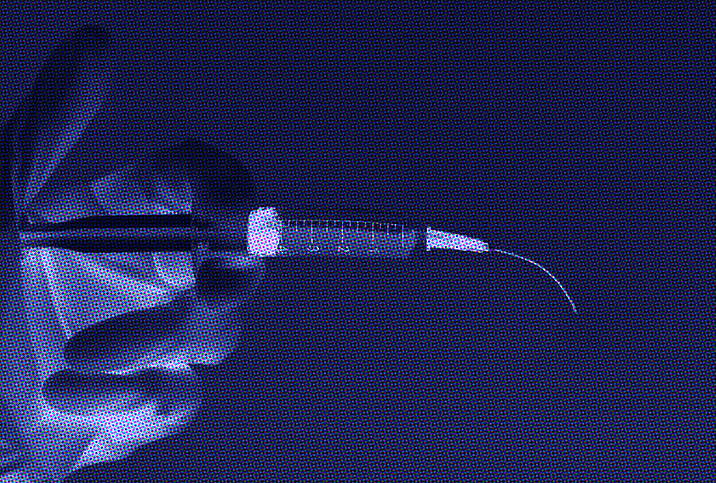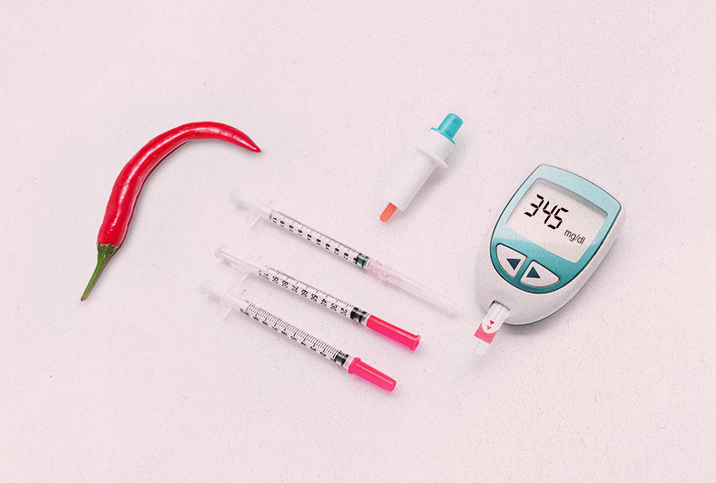How Might Diabetes Affect Your Male Partner's Sexual Health?

Diabetes can contribute to a host of sexual health issues. In men, those effects include erectile dysfunction (ED), decreased libido, diminished penile sensation and ejaculatory problems. Any or all of these conditions can be distressing for the person with diabetes and their partner.
A partner's support can be crucial to helping the patient get their diabetes under control and improve sexual function.
When a man has ED due to diabetes, or any other physical condition, his partner should be as positive as possible. The partner needs to realize they are likely not the reason the man is struggling with erections, according to urologist Jesse Mills, M.D., the director of the Men's Clinic at UCLA in Los Angeles and the author of the book "A Field Guide to Men's Health."
"A lot of partners will try to take on that guilt level of thinking, 'Oh, it's because he's not attracted to me.' But I think they just have to normalize the fact that he has a physical condition that prevents him from getting normal erections," Mills said.
Having that understanding and being able to communicate openly outside of the bedroom is critical. The partner should be encouraging and let the man know that he is free to pursue whatever therapies he needs to restore his erectile function.
"For better or worse, we take a lot of our self-esteem from our ability to get normal erections," Mills said. "If a disease state takes that away from us, men should feel that they have that freedom and that space from their partners to pursue whatever they need to restore that erectile function."
About half of the men with type 2 diabetes also have low testosterone (low-T), which is a risk factor for decreased sex drive.
"It's a reasonable thing to say, 'Hey, I noticed that we're not quite as intimate as we used to be. Is everything OK? Maybe we should make an appointment with a urologist or somebody who can evaluate everything, make sure your testosterone levels are good and make sure we can do something to optimize your erectile function.' Again, it goes back to that communication and leaving an open space so that the man doesn't get defensive," Mills said.
How can a partner help with lifestyle modifications?
Many diabetes patients can improve their symptoms with lifestyle modifications, so it's helpful if their partners are on board with a healthier diet and regular exercise, according to Lael Stieglitz, M.D., a urologist at Baptist MD Anderson Cancer Center in Jacksonville, Florida.
"Lose weight, get a good exercise program and get your sugar under control," Stieglitz said. "A partner who helps with that is always really good. Erectile dysfunction is a problem with blood flow and blood vessels. They need to be able to do cardio. They need to be able to walk a mile or two. They should be able to go up a flight of stairs without getting winded."
Men and their partners should consider heart-healthy diets. If he smokes, encourage him to quit.
"Diabetes is a disease of small vessels," Stieglitz said. "Men don't like to think the blood vessels in their penis are small, but they are."
It's beneficial, Mills said, if the man's partner accompanies them on walks and other physical activities and helps prepare healthy meals.
"If it's diabetes that can be corrected with lifestyle modification, then it's great to have a supportive partner that says, 'Hey, let's stop eating so much sugar. Let's get some more exercise. Let's sleep better,'" he said.
Be loving and nonjudgmental
The most important thing the partner of a man with diabetes can do is to express that you love and support them, said Bat Sheva Marcus, L.C.S.W., Ph.D., a sex therapist in New York City and the author of "Satisfaction Guaranteed: How to Have the Sex You've Always Wanted."
"Talk about it, and don't leave the elephant in the room. [Say] 'I've noticed your erections aren't as strong as they were. Are you noticing it, too? We should maybe look into it and see what's going on,'" Marcus said.
From her experience counseling heterosexual couples, Marcus has noticed a partner often has to mention something a few times before a man takes action.
"My sense is you have to have the conversation two or three times to get the guy to the doctor," she said. "But if you do it in a loving, caring way, it goes very far in sustaining the relationship."
Eliminate shame
Partners also need to recognize that men feel a significant amount of shame regarding ED and sexual dysfunction.
"For women, sometimes it's really hard to understand how much we as a society have equated penile erections with masculinity," Marcus said, adding that the more the partner can be loving and supportive and initiate a dialogue the better. "Shame doesn't live in the dark spaces. When you talk about things, it erases the shame. It's pretty unbelievable."
This is why it's critical that the partner discusses the sexual issues resulting from diabetes in a way that is loving and nonjudgmental.
"Have a sense of humor about it," Marcus said. "Then there's almost no sexual problem that the guys can face that they can't figure out together."




















